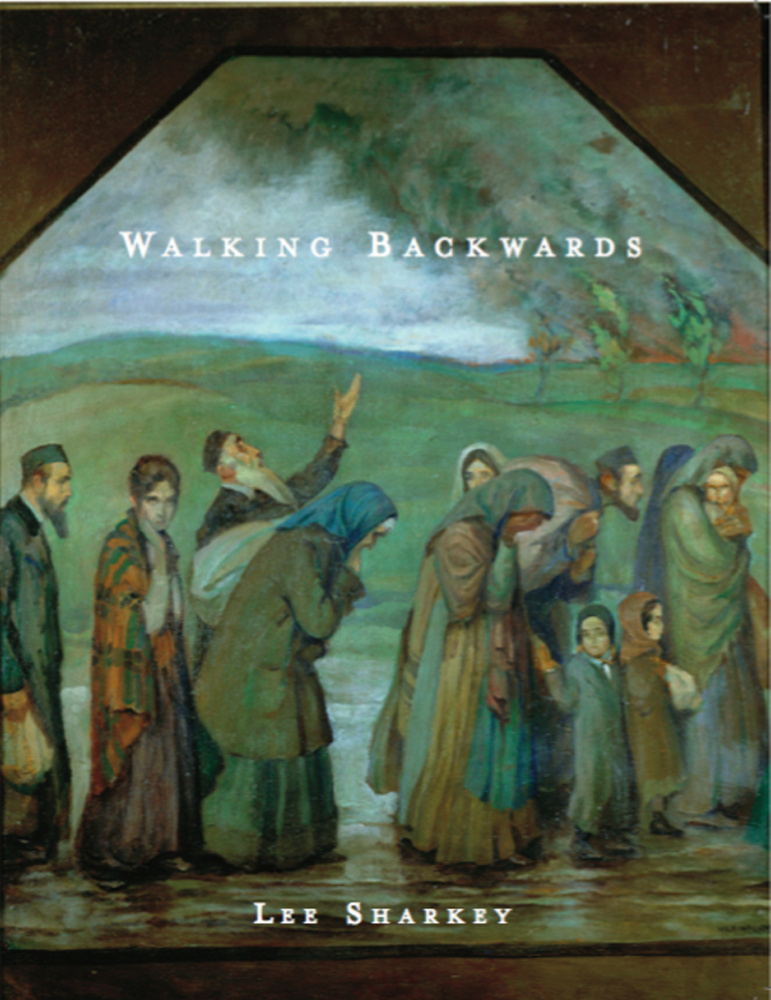“Walking Backwards”
By Lee Sharkey
Tupelo Press, North Adams, Mass., 2016
100 pages, paperback, $16.95
Lee Sharkey’s long, distinguished career in Maine letters covers 11 poetry collections; editing the Beloit Poetry Journal; receiving a number of literary awards including a Maine Arts Commission fellowship; teaching at the University of Maine at Farmington, Unity College and other Maine institutions; and an implacable dedication to human rights and dignity. This latter disposition has become a point of emphasis in the study of the humanities in recent decades, and it’s no surprise to find the theme at the core of Sharkey’s most recent collection, “Walking Backwards.”
The subject matter of these poems derives from an intricate mixture of Torah stories, contemporary refugee events, and extensive allusion to the writings of Holocaust survivors Paul Celan, Nelly Sachs, Abraham Sutzkever and Peretz Markish. The interweaving of these different elements is given in mostly terse, “paratactic” verses, meaning that for the most part, sentences/lines/images are placed side by side to produce a mental atmosphere rather than a conventional narrative sequence of events. The effect, page for page, is a deeply felt sense of compassion for suffering — particularly, suffering inflicted on human beings by other human beings.
Some of Sharkey’s most gripping writing (not just in this book, but also others that I’m familiar with) occurs in the poems that open the volume. “Cautionaries” is a cycle of eight short lyrical narratives whose characters are primarily ghosts reliving — or being relived by others — in various, complex ways the unfinished business from their time on Earth. “After the old man died by fire he thought he had done enough,” begins poem No. 2 in the series. In eight lines, we discover the old man settling into a place where he is not wanted — which is no surprise to him. No. 6 goes, in its entirety:
I slipped into the skirts of Rosa Luxemburg
and crossed the border to foment the revolution.
I was felled by fever.
I typeset What next? in secret
with a crew of fly-by-night compositors.
Every night we commandeered a print shop;
presses clattered out the great new day.
Even now,
a century later: ink stain on my fingers.
Which of Sharkey’s literary antecedents these events allude to, I don’t know. But the sense of exile, action amid danger, hope and ghostly timelessness add up to a powerful mental experience of the past overlapping into the present, especially the past that carries forward in words — language, speech, mouths being among the collection’s primary motifs.
As the book progresses, the narratives grow less linear and more allusive, relying on the reader’s ability to cohere the “paratactic” rhetoric. This requires some reading skill with roots influenced by Eliot’s “The Waste Land” as well as the imagist movement of a century ago, in which Ezra Pound, H.D. and others composed lines that set images side by side for the mental effects — not necessarily ideas — those juxtapositions created. You have to listen to these poems with the eye of your heart. What arises before that eye is an expansive plea for universal compassion — a sensibility we all may need to cultivate with creative determination in the coming years, given recent political events.
Other collections of poetry by Lee Sharkey include “Calendars of Fire” (2013), “A Darker, Sweeter String” (2008) and “To A Vanished World” (1995). She has received the Abraham Sutzkever Centennial Award in Translation and the Maine Writers and Publishers Alliance’s Distinguished Achievement Award, among other honors. She lives in Portland, after many years teaching in Farmington.
Off Radar takes note of books with Maine connections every other week. His book “Summer to Fall” is available from North Country Press www.northcountrypress.com/summer-to-fall. Contact Dana Wilde at universe@dwildepress.net.
Send questions/comments to the editors.



Success. Please wait for the page to reload. If the page does not reload within 5 seconds, please refresh the page.
Enter your email and password to access comments.
Hi, to comment on stories you must . This profile is in addition to your subscription and website login.
Already have a commenting profile? .
Invalid username/password.
Please check your email to confirm and complete your registration.
Only subscribers are eligible to post comments. Please subscribe or login first for digital access. Here’s why.
Use the form below to reset your password. When you've submitted your account email, we will send an email with a reset code.